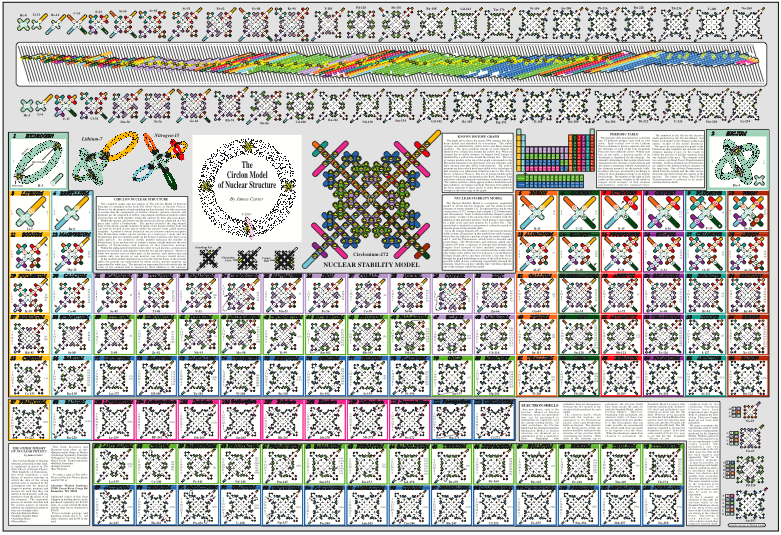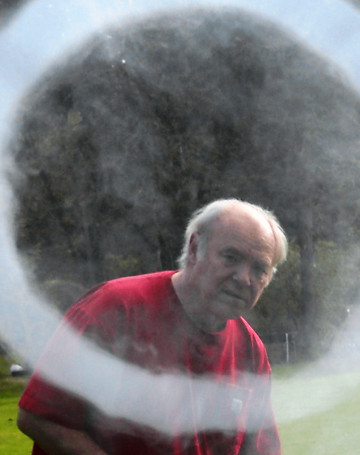Scientist Profile
James Carter became prominent world-wide with the publishing of the book “Physics on the Fringe” by Margaret Wertheim of which he was the featured scientist “on the fringe”. They even made a mini-documentary about James to go along with the book tour.
James is a rebel. In fact, he prides himself in calling himself a crackpot – something other serious critical thinkers outside the mainstream shy away from. His theory of gravity is unique in the dissident world with gravity being caused by the constant expansion of the earth pushing up against everything. It is very important as a critical thinker to keep one’s mind open to all possibilities. Otherwise, great insights can be missed.
James also has an entirely new structure for atoms which he presents in a very detailed poster, which by the way, you can purchase online for a modest price. This model is based on the circlon which was inspired by smoke rings.

In His Own Words
Excerpt from James website: https://living-universe.com/
I am what is known by the scientific establishment as an outlier crank theoretical physicist with my own crackpot pet theories of photons, atoms, gravity, and the Big Bang. There are a great many of these “dissident” physicists each with their own particular theory to explain various experimental measurements. Virtually all of these theories are based on their author’s particular style of aether that is meant to either replace or be added to the spacetime continuum fields of special and general relativity. The Living Universe theory of creation is the opposite of both these “wrong” crackpot theories and the “right” standard model theories. My new theory is just a mechanical interaction of atoms and photons without the fields, waves, spacetime, aether dimensions, singularities, or zero point energy proposed by some or all of the other theories of everything.
I have never been inside of a university except to visit the library. As a theoretical physicist, I consider this to be an advantage. I have long had the belief that the quality of one’s education should be based on what knowledge you have learned and not just the knowledge to which you may have been exposed. The important thing is what you know and not the location where you may have learned it.
![]()

